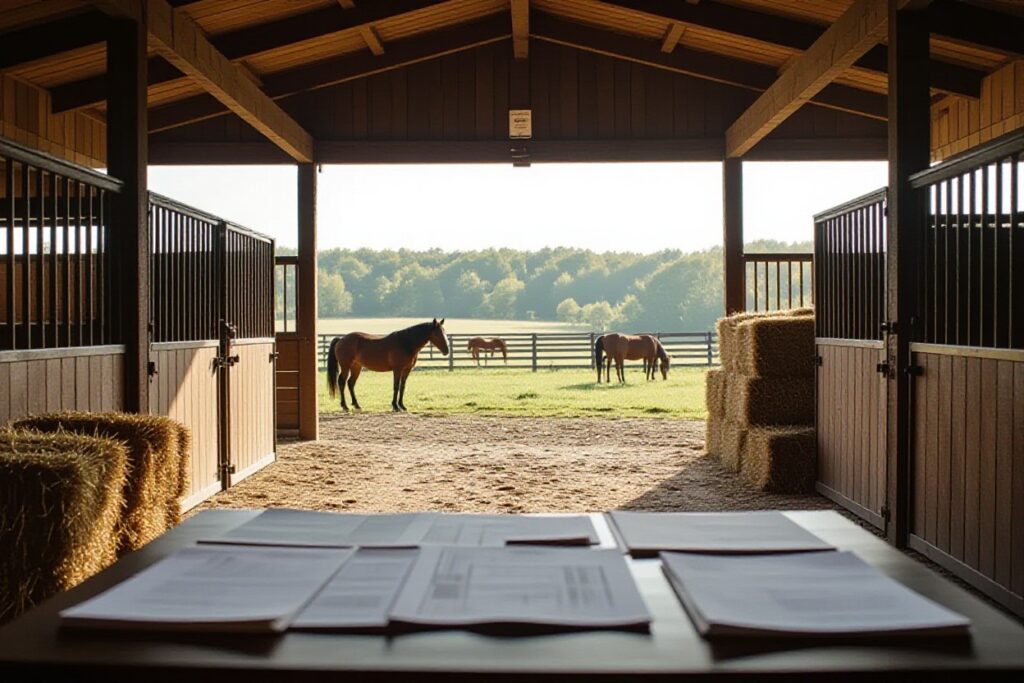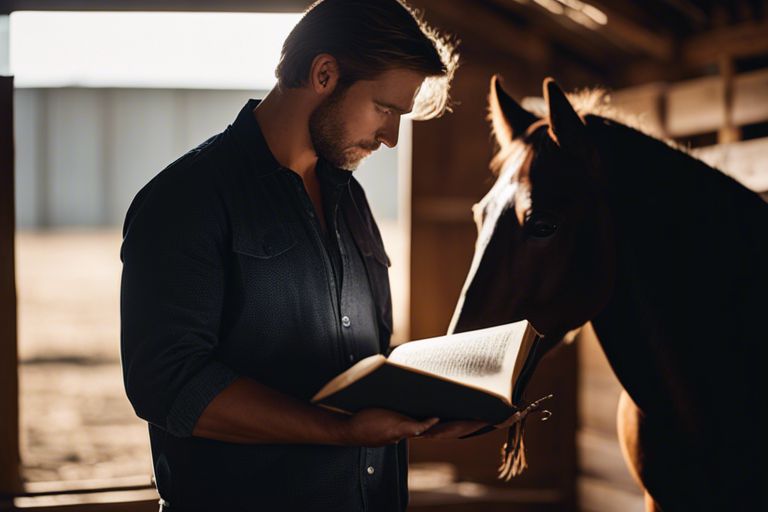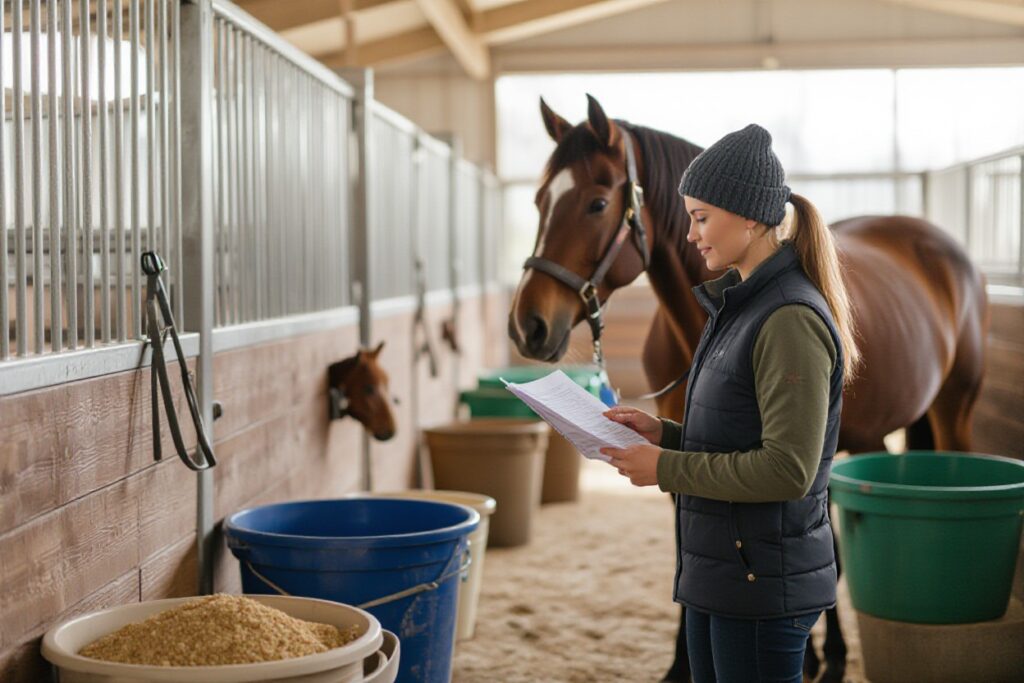Over the rolling fields and in the stables, owning a horse can bring immense joy and responsibility. In this article, you will explore the legal intricacies surrounding horse ownership, covering liabilities, insurance needs, boarding contracts, and liability waivers to protect yourself and your equine companion from any unforeseen circumstances. Giddy up and let’s explore the legal world of horse ownership together!


Legal Requirements for Horse Ownership
A significant aspect of owning a horse is understanding the legal requirements that come with it. As a responsible horse owner, you must comply with certain regulations to ensure the well-being of your equine companion. Let’s explore into the important legal aspects you need to know.
Registration and Licensing
The registration and licensing of your horse are crucial aspects of ownership. It is important to check with your local authorities to determine if there are any specific regulations in place regarding horse registration and licensing in your area. Some regions may require you to register your horse for identification purposes or obtain a license to keep horses on your property. Ensuring that your horse is properly registered and licensed not only keeps you compliant with the law but also aids in the traceability and protection of your horse.
Vaccination and Health Records
An important legal requirement for horse ownership is maintaining up-to-date vaccination and health records for your horse. You must ensure that your horse receives necessary vaccinations to prevent against illnesses and diseases. Keeping your horse’s health records in order is not only a legal obligation but also crucial for protecting the well-being of your horse and other horses It may come into contact with.
Contracts and Agreements
One vital aspect of horse ownership is understanding the various contracts and agreements that come with it. These legal documents help protect both the buyer and the seller in a transaction.
Purchase and Sale Agreements
Agreements related to the purchase or sale of a horse outline important details such as the purchase price, the condition of the horse, any warranties or guarantees, and the responsibilities of both parties. It is crucial to carefully review and understand these agreements before signing to avoid any misunderstandings or disputes in the future.
Leasing and Rental Agreements
The leasing or rental of a horse involves agreements that specify the terms of the arrangement, such as the duration of the lease, the responsibilities of the owner and the leaser, and any financial obligations. Understanding these agreements is crucial to ensure a smooth and mutually beneficial relationship between all parties involved.
Purchase and sale agreements, leasing and rental agreements, and breeding and stallion agreements are all integral parts of horse ownership, each with its own set of legal implications that you need to be aware of.
Breeding and Stallion Agreements
Any agreements related to breeding or stallion services should outline details such as the stud fees, breeding terms, and any guarantees or warranties. It is important to have a clear understanding of these agreements to avoid any potential conflicts or misunderstandings down the line.
Understanding the legal aspects of contracts and agreements in horse ownership is vital to protecting yourself and your interests. By familiarizing yourself with the terms and conditions laid out in these documents, you can ensure a smooth and successful horse ownership experience.
Liability and Risk Management
Now, when it comes to horse ownership, there are important considerations regarding liability and risk management. As a horse owner, it’s crucial to protect yourself in case of any unfortunate incidents involving your equine partner.
Insurance Options for Horse Owners
On your journey as a horse owner, consider investing in insurance to safeguard yourself against unforeseen events. **Insurance** options can vary but typically include coverage for liability in case your horse causes property damage or injuries to others. It can also cover medical expenses if you or others are injured while riding or handling your horse.
Waivers and Release Forms
Horse ownership comes with inherent risks, and one way to mitigate them is by using **waivers** and release forms. These legal documents can help protect you by making participants aware of the risks involved in equine activities and acknowledging their consent to participate at their own risk.
Horse **waivers** and release forms are necessary tools in risk management. They can help establish a clear understanding between you and anyone interacting with your horse, outlining the inherent risks involved and releasing you from liability in case of accidents. Having these forms in place can provide you with an added layer of protection.
Emergency Preparedness and Response
Forms of Emergency Preparedness and Response
During your horse ownership journey, **emergency preparedness** and response planning are critical. Having protocols in place for emergencies such as injuries, natural disasters, or runaway horses can make all the difference in ensuring the safety of both you and your equine companion.
**Insurance** is another crucial aspect to consider. While it may come at a cost, having **insurance** coverage in place can offer you peace of mind knowing that you are financially protected in case of unexpected events. Whether it’s equine medical insurance, liability insurance, or mortality coverage, investing in the right insurance policies can help you manage risks effectively.
Equine Law and Regulations
Many aspects of horse ownership are governed by specific laws and regulations to ensure the well-being of the animals and the safety of the community. It is necessary for you, as a horse owner, to understand and comply with these legal requirements to avoid any potential issues.
Federal and State Laws Governing Horse Ownership
Regulations regarding horse ownership can vary between states, but there are also federal laws that you need to be aware of. These laws may cover areas such as transportation of horses, import and export regulations, and animal welfare standards. It is crucial to familiarize yourself with both federal and state laws to ensure you are meeting all legal obligations as a horse owner.
Local Ordinances and Zoning Regulations
Regulations at the local level can also impact your ability to own and keep horses on your property. Zoning regulations may dictate the type of animals allowed in certain areas or the size of structures such as barns or arenas. It is important to check with your local government or planning department to understand any specific ordinances that may apply to you.
Local regulations are designed to maintain the harmony of residential areas and prevent any potential issues that could arise from improper horse keeping practices. By following these regulations, you can be a responsible horse owner and a considerate neighbor.
International Laws and Regulations
Governing bodies at the international level may also have regulations that impact horse ownership, especially if you are involved in activities such as international competitions or transportation of horses across borders. These regulations may cover areas such as animal health requirements, quarantine procedures, and customs regulations. It is important to stay informed about any international laws that may affect your horse ownership practices.
Equine law is a complex and evolving field, influenced by a variety of factors including animal welfare concerns, public safety issues, and international trade considerations. By staying informed and complying with legal requirements at the federal, state, local, and international levels, you can ensure that your horse ownership experience is not only enjoyable but also legally sound.

Dispute Resolution and Litigation
Mediation and Arbitration
After engaging in horse ownership, you may encounter disputes that need resolution. Mediation and arbitration are alternative dispute resolution methods that can help you avoid lengthy and costly court battles. Mediation involves a neutral third party assisting you and the other party in reaching a mutually acceptable agreement. Arbitration, on the other hand, is a more formal process where an arbitrator listens to both sides and makes a binding decision.
Court Proceedings and Litigation
With certain disputes, litigation may be necessary to resolve the issue effectively. This involves taking the matter to court for a judge to make a decision. For instance, if there is a serious breach of contract or an unresolved issue that parties cannot settle on their own, litigation may be the next step to take.
Alternative Dispute Resolution Methods
Dispute resolution methods such as mediation, arbitration, and negotiation can offer more flexibility and control over the outcome compared to traditional court proceedings. These methods allow you to resolve conflicts in a less adversarial manner and often result in quicker resolutions, saving you time and money in the long run.

Taxation and Financial Considerations
Tax Benefits for Horse Owners
Considerations: Keep in mind that owning a horse can come with certain tax benefits. Expenses related to caring for and maintaining your horse may be tax-deductible, such as veterinary care, feed, and even transportation costs. Additionally, if you use your horse for a business purpose, you may be able to deduct expenses related to that usage.
Depreciation and Amortization
Horse: Depreciation and amortization are accounting methods that allow you to spread out the cost of your horse over its useful life. This can help you manage the financial impact of purchasing a horse, as you won’t have to take the full expense all at once.
For instance, if you purchase a horse for $10,000 and its useful life is determined to be 10 years, you can depreciate the horse by $1,000 each year. This can be especially useful for horses used in business activities, as you can allocate the cost of the horse over time.
Financial Planning and Budgeting
Financial: In terms of owning a horse, **financial planning** and budgeting are crucial. **Strong** considerations should be made for **regular expenses** such as feed, **veterinary care**, and **boarding** fees. Additionally, **unexpected costs** can arise, so having a financial **safety net** is crucial to ensure the well-being of your horse.
This will **help** you **maintain a stable financial situation** and ensure that you can provide the **necessary care** for your horse without **unforeseen financial strain**. **Being prepared** for the **financial responsibilities** of horse ownership will **contribute to a positive experience** for both you and your equine companion.
Conclusion
Ultimately, understanding the legal aspects of horse ownership is crucial for ensuring a smooth and enjoyable experience with your equine companion. By familiarizing yourself with laws regarding liability, contracts, and property rights, you can protect yourself and your horse in various situations.
Bear in mind, ignorance of the law is not an excuse, so take the time to educate yourself and seek legal advice when needed. By being proactive and knowledgeable about the legal aspects of horse ownership, you can prevent potential issues and focus on enjoying your time with your beloved horse.
Q: What are the responsibilities of horse ownership?
A: As a horse owner, you are responsible for providing proper nutrition, shelter, healthcare, exercise, and socialization for your horse. You must also comply with all legal requirements for horse ownership in your area.
Q: What legal issues should I be aware of as a horse owner?
A: Some legal issues to be aware of as a horse owner include liability for injuries caused by your horse, zoning regulations regarding property use for horses, and contract issues related to buying, selling, or leasing a horse.
Q: Do I need insurance as a horse owner?
A: It is highly recommended to have liability insurance as a horse owner to protect yourself financially in case your horse causes property damage or injury to others. Equine insurance can also cover veterinary expenses and mortality costs for your horse.
Q: What are the laws regarding horse transportation?
A: When transporting horses, you must comply with regulations regarding vehicle safety, animal welfare, and documentation. Make sure your trailer is properly equipped and that you have necessary health certificates and permits for interstate or international travel.
How can I protect myself legally when buying or selling a horse?
A: To protect yourself when buying or selling a horse, it is important to have a written contract outlining the terms of the transaction, including health guarantees, purchase price, and any conditions of sale. Consider involving a lawyer experienced in equine law to review the contract.










